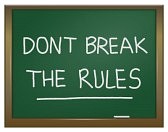They say writing your second novel is easier. After all, you have the experience of a full manuscript behind you, which should make you a pro. And I don’t mean pro in the sense of style, because I think as writers we are continually mastering our craft, but as far as the basics go, we should have them down, especially if we’ve already gone through the process of editing and publishing. Well, I’m here to tell you that “they” lied.
Writing that second novel is not easy. At least it hasn’t been for me.
We all want our follow-up to be better than our debut. We want it to shine and for our readers to be wowed by how much our writing has matured. That in itself adds pressure as we sit with our fingers posed and our heads blankly staring at the screen. I’ve gone through a myriad of emotions with this second book. From self-doubt to being ready to kick its ass. But even when I finally got into the grove, I found that words didn’t come easy.
I had a full manuscript at one time. Completely done from start to finish and then I started editing. I cut this, added that, and then decided my characters needed to wait on having sex. My heroine liked this friend and then decided she didn’t. My hero loved his coaching job, but then decided he had higher aspirations. There was a baby and then none and then someone else got pregnant. A death. More sex, less sex, no sex. Should they be scorned from past struggles or be bold and decide that those things don’t matter? My characters might seem fickle, but really they aren’t. In the end, they know what they want, I just have to work through the process of getting to know them better. I don’t mind this part of writing. I actually love visualizing a scene over and over in my head and talking with my characters until it all comes together. But, none of that has come very easily with this second book.
Writers block? Not exactly.
I never gave much thought to the rules of writing, before. I wrote what and how I wanted and somehow it just all came together. Now, though, I find myself lost in everything I’ve learned and the pressure to incorporate it as I’m writing, gets very distracting. Every time the word, “was,” pops up in a sentence, it’s an immediate joykill. I stop and think. And think and think some more about how can I eliminate it, because “was” is a dead ringer for passive voice, right? Right. Punctuation also trips me up. Not periods, exclamation points and question marks, but whether to use an ellipsis or an em-dash? And don’t even get me started on commas. Be careful about using adverbs, too. I have all these rules running through my head and I try to apply them as I’m going along, but the stopping and starting zaps my creativity and before I know it, I’ve spent an hour on a paragraph trying to make it perfect and that scene that a moment ago, was fresh in my head, shrivels up and evaporates. I’ve determined, I was a much better writer when I had no clue what I was doing.
It’s been hard, but I’ve been trying to ignore all the rules and just write. It’s been about three weeks and you know what? I’ve finally made progress. Good progress. Like two more chapters to rewrite progress. Sometimes having no clue what you’re doing works to your advantage and sometimes it helps to pretend that you’re clueless even when your not. Maybe some day I’ll learn how to balance this out, but in the meantime, I ‘m forgetting the rules and letting the words pour out.
I’m forgetting how to write.




Yes!! Great post, Dena!! I need to do the same. It’s horrible how a process changes from something we adored doing to something that makes us feel sick thinking about it.
LikeLiked by 1 person
I identified with this so clearly having gone through the same kind of thing. Don’t let the rules destroy your passion for the story and good luck as you move on with your new book.
LikeLike
I think my second novel will be easier because it’ll be the second in a series – less exposition, less universe establishment, can just jump right into the action. We will see. 😉 But I commiserate with a lot of your points about how the more you write, the more you realize you’re doing stuff wrong, ha. That’s just part of the process though. You know the rules and can apply them during editing. Don’t let them badger you when you’re trying to get your scaffolding right.
LikeLike
I think you’re right, Dena – it is harder once you’ve been throught the editing process on your first book. You end up trying to stay conscious of so many things you’re now aware of, you lose that freedom to let your writing flow. Maybe it’s best to just empty your head of the rules, do your thing, and then go over it with a fine-tooth comb after. Easier said than done!
LikeLiked by 1 person
Ugh! I DEFINITELY feel your pain! As they say, “Ignorance is bliss.” And in this case, that’s the truth! Good luck! ❤
LikeLike
I totally hear you, Dena, and feel like I’m in a similar situation to you. Before I paid much attention to the “rules,” I worked on two novels–I’d go back and forth between them–and then, as I started reading more about the rules, I was able to apply them–or at least try– to what I’d already written. And it sort of worked, since the raw material was already there. But novel #3 has been really tough for me, because I wrote it post-rules. It took a very long time to finish, and even after three full drafts, I’m not sure it will ever see the light of day. Right now, it’s with an editor, and I’m very curious to hear what he thinks. One thing’s certain: it’s very different than my other two books, because of those darn rules. The problem is, I think it may just be really boring!
Best of luck to you with your new story. It sounds like you’ve figured out a way to get your creativity back: ignoring the rules for now. That seems like a good plan. Someone once told me that our internal editor is our worst enemy, and I think that’s true. You can always change things later, but getting your true story and emotions on the page is what will make the manuscript live and breathe.
LikeLiked by 1 person